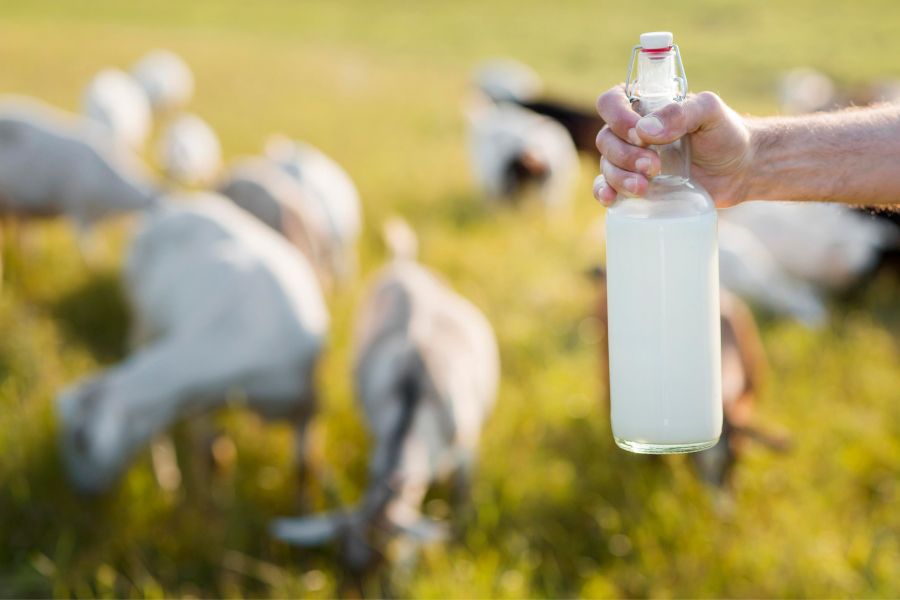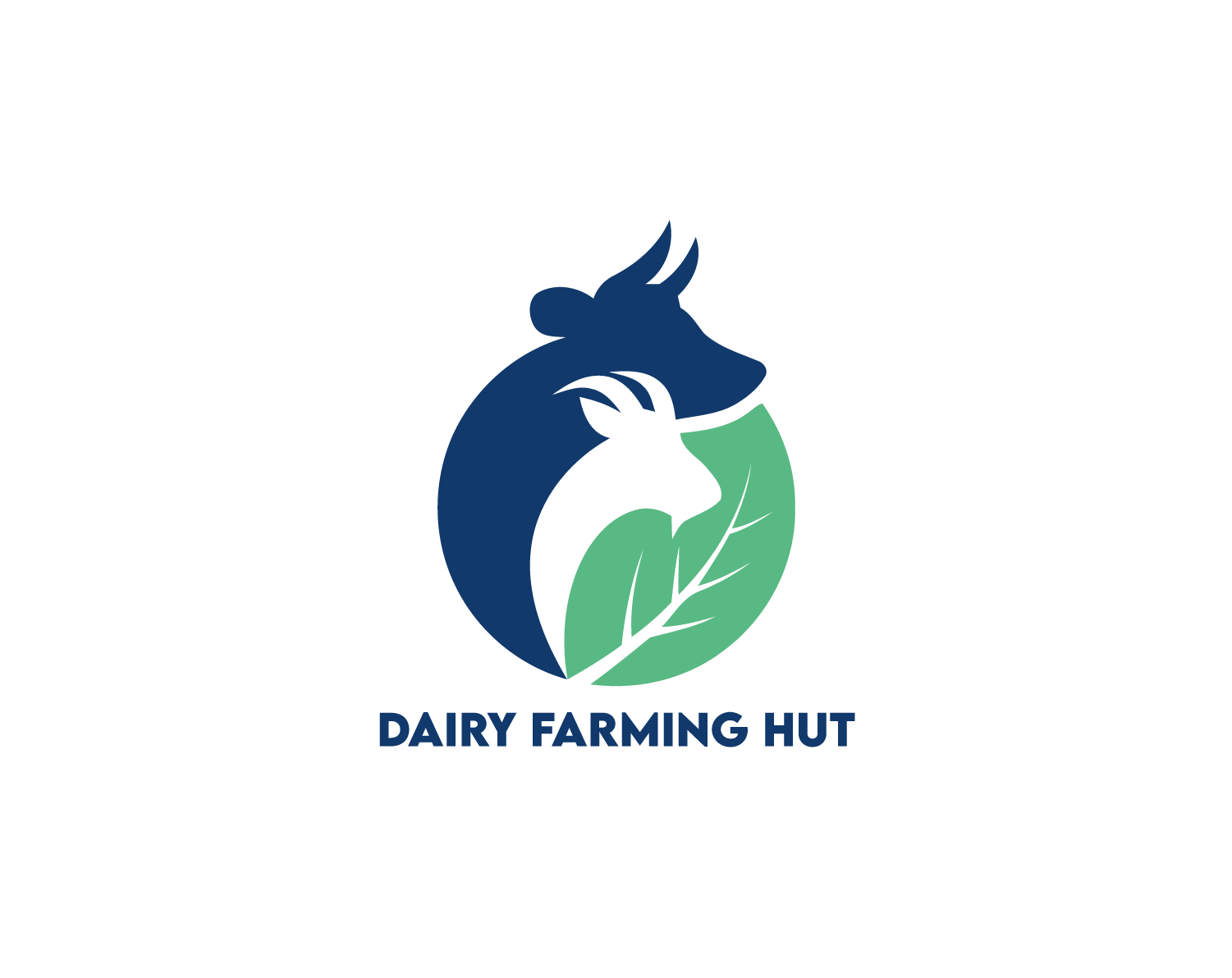If you are a goat farmer who milks their herd daily, you quickly learn how much milk to expect from each of your goats, and you immediately notice when one of your goats starts to produce less milk than usual. There are several reasons why a goat may produce less milk.
Goats may produce less milk if they are stressed, have a health issue like mastitis, or have a nutritional deficiency. It is natural for a goat to produce less milk as they get older, especially after about 10 years. Goats normally produce less milk in the winter compared to the summer.
Understanding these reasons is important to keep your herd healthy and productive. This article discusses in more detail why goats may suddenly start producing less milk. It also explains what you can do to boost your herd's milk productivity.
Why Is My Goat Producing Less Milk Than Usual?

A decrease in milk production in dairy goats is often related to health issues. For example, health problems such as mastitis, an infection of the mammary gland, can cause a significant reduction in milk production.
Goats that are experiencing health problems may also have a reduced appetite, which can further contribute to a decrease in milk production. You must consult a veterinarian to rule out any health issues and ensure that your goat is getting the proper treatment.
Nutritional deficiencies can also be a cause of decreased milk production. Dairy goats require a specific balance of nutrients to produce milk. Therefore, deficiencies in protein, minerals, or other essential nutrients can cause a decrease in milk production. Severe deficiencies can even cause goats to "dry up" completely.
It is important to ensure that your goats are getting the proper nutrition by providing them with a balanced diet and monitoring their weight and body condition. Offer female goats extra feed during gestation and while they are lactating.
Stress is another factor that can cause a decrease in milk production. Changes in the goat's environment or routine can cause stress, which can affect milk production.
Examples of stressors include changes in herd composition, moving to a new location, or changes in herd management. Therefore, it is important to minimize stress as much as possible by maintaining a consistent routine and providing a comfortable living environment for your goats.
Goats naturally produce less milk when their kids reach the weaning age. Usually, this happens around the age of 4 or 5 months.
Age is also a factor that can affect milk production. As a goat gets older, its milk production may naturally decline. So, it is important to monitor the milk production of older goats and to consider replacing them with younger animals to maintain a productive herd.
Seasonal changes can also affect milk production. Goats typically produce less milk in the winter months than in the summer. This is due to decreased daylight in the winter, which affects the goat's hormonal balance. It is important to plan for this natural decrease in milk production by adjusting the herd's management and feeding schedule accordingly.
What Diseases Can Affect Goat Milk Production?
There are several diseases that can affect milking goats and cause them to produce less milk. Some common conditions include:
- Mastitis: This is an inflammation of the mammary gland that can be caused by bacterial infection. Symptoms include swelling, heat, and pain in the udder, as well as a decrease in milk production.
- Ketosis: Also known as "twisted stomach," this metabolic disorder can occur when does are overfed or in poor condition. Symptoms include decreased appetite, weight loss, and decreased milk production.
- Parasites: Internal and external parasites can cause various health issues in goats, including anemia, weight loss, and decreased milk production.
- Endometritis: This is an inflammation of the uterus and can occur after kidding or breeding. Symptoms include reduced milk production and fertility issues.
- Laminitis: This disease affects goats' feet and causes severe pain and lameness. It can be caused by overfeeding, obesity, and other metabolic disorders, leading to reduced milk production.
Also Read: Do Dairy Goats Need Scrapie Tags?
How To Increase Goat Milk Production?
Consider the following factors if you need to increase your goat herd's milk production:
- Proper nutrition: Goats require a balanced mix of forages, concentrates, and minerals. Providing them with the right nutrients can help increase milk production and improve the quality of the milk.
- Demand: Goats' milk production works much like the economy – supply is dependent on demand. The less you milk a goat, the less milk it will produce. If you milk your goat once daily, try increasing milking to twice or even three times daily. This should cause their overall milk production to increase.
- Hydration: Goats must drink enough water to produce large amounts of milk. A general rule of thumb is that adult goats should consume around 3-5% of their body weight in water per day. This means if you have a 100-pound goat, it should consume at least 3-5 gallons of water per day. However, this can vary depending on the ambient temperature, humidity, lactation stage, and feed ration. Ensure that your goat herd always has an ample supply of fresh drinking water.
- Health management: Goats need to be kept healthy to produce high yields of milk. This includes regular vaccinations, parasite control, and early detection and treatment of any health issues.
- Genetics: Selecting dairy goats with high genetic potential for milk production can also help increase milk yields. Breeding from high producing does and bucks can lead to a herd with increased milk production.
What To Feed Goats To Increase Milk Production?
Goats require a balanced diet that includes a mix of forages, concentrates, and minerals to produce more milk. Some foods that can be fed to goats to increase milk production include:
- Forages: Goats need access to a variety of fresh, high-quality forages such as grass, hay, and silage. These provide the bulk of their diet and are important for maintaining good health.
- Grains: Feeding goats grains such as barley, oats, and corn can provide the energy they need to produce milk. Feeding them the right amount of grains is important, as overfeeding can lead to health issues.
- Protein: Dairy goats require a high level of protein in their diet to produce milk. Feeding them protein-rich supplements such as soybean meal, cottonseed meal, or fish meal can help increase milk production.
- Minerals: Dairy goats also need a balanced mineral supplement to support milk production and overall health. This includes calcium, phosphorus, and magnesium, as well as trace minerals such as zinc, copper, and selenium.
It's important also to note that goats are ruminants, and their diet should be tailored to the specific needs and stage of the animal. The ratio should be balanced and not overfed. Consultation with a qualified animal nutritionist is recommended to ensure that the diet meets the nutritional needs of the herd.
Conclusion
Finally, there can be many reasons why your goat may suddenly produce less milk. It's essential to rule out any health issues and ensure that their nutritional needs are being met.
Additionally, keeping your goats in a stress-free environment and practicing good herd management can optimize their productivity. Remember, as your does age, their milk production will naturally decrease, so proactive management is crucial.
Also, the proper dry period for your goat is essential for maintaining optimal milk production and ensuring good health. Keep your goats healthy and happy, and they will reward you with abundant milk production.
